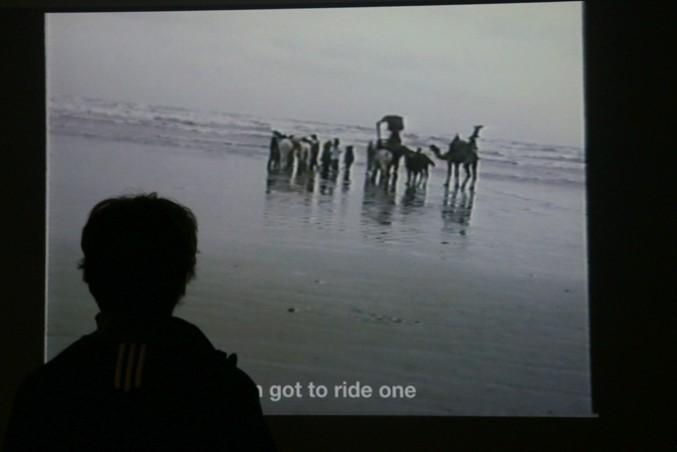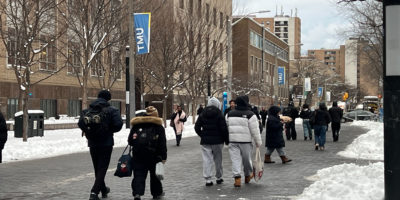By Mikaila Kukurudza
For 15 years, artist Zinnia Naqvi waited to take photos of her homeland; but after a single hour of shots, it still wasn’t enough.
Seaview is a 12-minute experimental film at the Image Arts Centre by the 23-year-old Ryerson alumnus. Initially a fourthyear photography thesis project, Seaview reveals the truth behind photographs Naqvi took in Pakistan, her parents’ country of origin.
Naqvi’s themes of “globalism, trans-nationalism and identity,” mentioned in her bio, are carefully placed through her fourth-year photography thesis.
The 2014 graduate created Seaview when she shot beautiful images of Karachi, Pakistan’s Clifton Beach in 2013.
Naqvi found that the authentic story of the beach could not be told through her photographs alone.
The premise for Seaview was in place.
“I feel almost guilty presenting these photographs on their own because of what is behind the frame,” Naqvi said of her experience sorting through the still images. “It was almost like me being disappointed in myself.”
Before taking the photographs in August 2013, Naqvi had last been to Clifton Beach when she was a little girl. She went back at the age of 22.
The series contains various shots of brightly dressed camels carrying children as they are led by barefooted men at sunset.
These striking photographs felt strange to Naqvi because they did not represent her experience and the lack of belonging she felt.
“When you are trying to translate cultures, there is no objective opinion,” said Naqvi.
“I didn’t know what kind of project I wanted, or that I wanted to make a film. I was intending on going back a second time [because] I was so overwhelmed with all the footage I shot.”
This simultaneously allows viewers to become witnesses, fully submerged in the distant culture Naqvi encountered. Her project developed into a piece that combined still photos with family footage and personal videos from her trip.
In terms of home footage, the experimental film contains clips of a family wedding in her aunt’s Kawali music-filled living room, her limited conversations in Urdu with her driver and their hectic drive through the claustrophobic streets outside of Karachi.
Naqvi said the film was difficult to make. She forced herself to overcome her fear of releasing such a deeply personal film that highlights her insecurities with her cultural identity.
Naqvi found it hard to find her belonging in the homeland of parents.
“I was never really comfortable speaking the [local] language,” said Naqvi. “To speak it publicly was a challenge, to expose my discomfort.”
For some, the experimental film reveals more about Naqvi’s experience with each watch.
“I think I’ve watched that piece 20 to 25 times now,” said Sara Angelucci, the student gallery coordinator of Ryerson’s Image Arts Centre. “Because it’s so rich and layered, a second view reveals more nuanced details that enrich your understanding.”
For Naqvi, the movie itself took months of reflection and a lifetime of struggling to identify with the cultures a part of her life.
“I wanted to feel free at that time,” Naqvi said in the film about the initial shots she took walking along the beach. “But the actual act of taking the photographs was actually more stressful than I wanted it to be. I think that is telling of the place.”
The piece will be playing at Ryerson’s Image Arts Centre until Feb. 22.












Leave a Reply